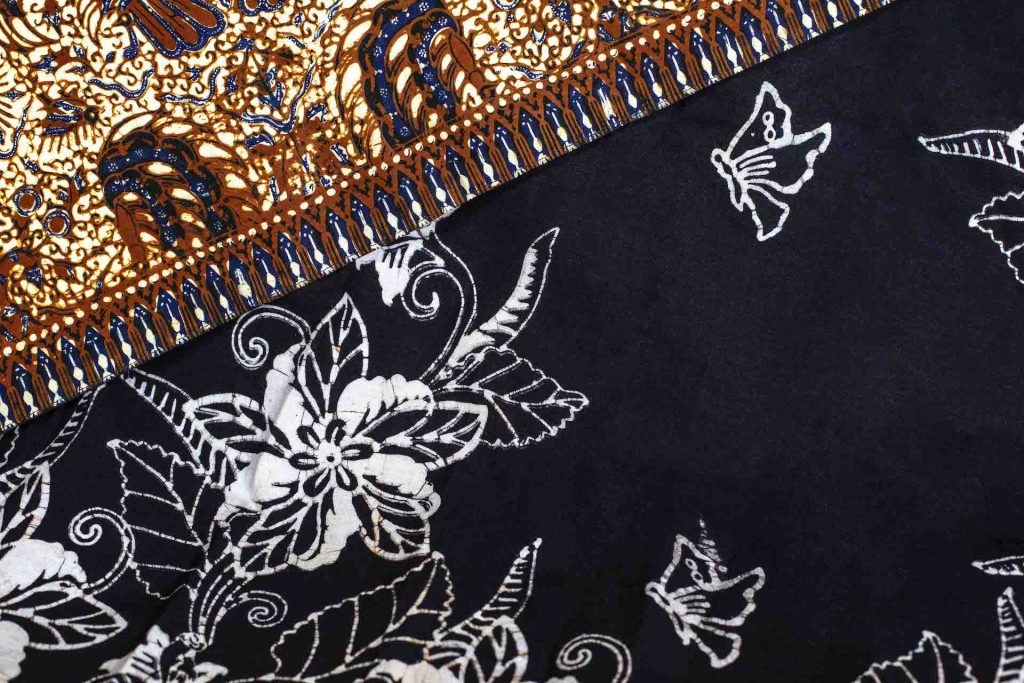Editor’s note: This is an excerpt from an article first published in the December 1956 The Commission magazine, published by IMB (formerly Foreign Mission Board). The author was Catherine Walker, missionary to China and Indonesia. After her retirement from the field, she led IMB’s new office of prayer strategy as President Keith Parks’s special assistant for intercessory prayer. She died in 2016 at age 100. Her words, written decades ago, hold timeless truths.

The Christian life is like an eye-catching piece of Indonesian batik, the distinctive cloth which forms the skirts of the Indonesian women. As these women gather at the markets in the early morning, their skirts form a mosaic of beautiful patterns.
Batik is the Javanese word meaning “wax painting,” and it is a process used in coloring and designing fabrics. The pattern is the work of an artist.
Two elements are needed to produce the pattern—wax and dye. The patterns are drawn with a hot mixture of beeswax and paraffin onto the cotton cloth. The wax flows easily and sinks into the material. Then the cloth is submerged in dye. Where the wax is painted, the dye cannot take effect.
The wax in the Christian’s life is the spiritual truth that is written into a believer’s heart either through personal Bible study, sermons, Bible lessons, spiritual books, or conversations and direct experiences with God in prayer. The dye that colors a Christian’s life is the circumstances that sweep over a life—the everyday happenings. Daily events will sweep over a life and submerge it. The mark that is left on the cloth of life, however, depends upon the wax markings that God has already written into the life.
From the early years I had said I was going to be a missionary to China; but this conviction was greatly reinforced and specifically confirmed one morning at college chapel when the blackboard contained a beautifully printed text: “Ye have not chosen me, but I have chosen you, and ordained you, that ye should go”; and in the right-hand corner the countries for special prayer were listed—China, Japan, and Korea.
Again God was saying “go,” and for me it would be China. Such a deep conviction of having been chosen was much needed later when the trials of studying the Chinese language could have ruined my spirit. The wax of the knowledge of the leading of God was the one steadying thought when I faced my language problems. It enabled me to accept my own limitation and to trust that God could use me as I was. The wax of God’s Word produces the resistance to discouragement.
After having been in Tsingtao, China, for only six weeks, I received a letter from the American consul advising all Americans to leave the Communist-threatened area on the next evacuation ship. Following my first impulse, I signed up to leave. Later, when praying, I realized that I was making my own decision without any consideration of God’s will. During my Bible study, as well as during prayer, the Lord seemed to say that He had not told me to leave.
Typical of many, many verses that came in my Bible study of those days was Psalm 37:3: “Trust in the Lord, and do good; so shalt thou dwell in the land, and verily thou shalt be fed.” When the evacuation ship sailed out of the harbor, I had no regret or fear. My heart was full pf peace because of the promise of God written in wax on my heart. Part of the beauty of life is not only in obeying the Lord but in having the right feelings toward circumstances.
Later I evacuated to Shanghai, not America. In the year and a half that followed I went through the most valuable mission experience I had in China. How much better was God’s will and wisdom than my own, and how wonderful that His Word could make me trust Him even when I did not know the outcome of following the road He chose.
 The batik of life is sometimes marred where there is no wax of truth actively protecting the soul from the onslaughts of life’s overwhelming experiences.
The batik of life is sometimes marred where there is no wax of truth actively protecting the soul from the onslaughts of life’s overwhelming experiences.
It was in the land of batiks, Indonesia, that I experienced one such marring of the joy of Christian living. When student criticism of my seminary teaching came to my attention, I was overwhelmed with a sense of failure and despair. For several weeks I wanted to weep when alone. It must have obviously marked the batik of my life, for my mother, who was visiting at the time, noticed the change in my spirit. I had made a big thing out of a little thing.
Articles about batik say that errors in the waxing and errors in the dying cannot be rectified. Thank God that in life, the Great Artist can take the marred and restore it to beauty and joy.



 Join Southern Baptists in 2020 as we celebrate 175 years of God’s work around the world through IMB. We will remember those who have gone before us. We will recognize God’s active work in the present. We will anticipate the day when every nation, tribe, people and language gather before the throne of Christ.
Join Southern Baptists in 2020 as we celebrate 175 years of God’s work around the world through IMB. We will remember those who have gone before us. We will recognize God’s active work in the present. We will anticipate the day when every nation, tribe, people and language gather before the throne of Christ.